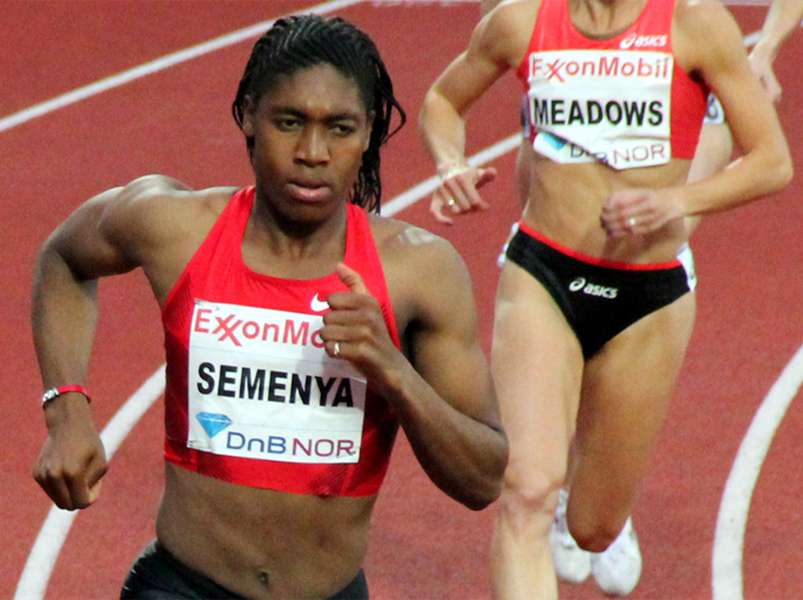Caster Semenya loses appeal over her testosterone levels so can’t defend Olympic gold

Caster Semenya will not be able to defend her Olympic gold 800m title in Tokyo next year after losing an appeal about her testosterone levels.
The ruling comes despite the UN High Commissioner for Human Rights saying sporting bodies should remove regulations for women athletes that make it harder for intersex and trans sportspeople to compete.
South African runner Semenya is the most famous case. The 800-meters Olympic champion has the intersex condition hyperandrogenism, which causes higher testosterone levels.
In particular she has both X and Y chromosomes, as do most men, while women typically only have X chromosomes.
Under rules from World Athletics, athletes with ‘differences of sexual development’ (DSD) can’t compete on distances of 400m and a mile. If they want to take part, they have to take testosterone reduction drugs.
Semenya’s legal battle
Semenya has challenged that ruling through the Swiss courts, starting in the Swiss Court of Arbitration for Sport (CAS) which has jurisdiction in such cases. And in June 2019 a Swiss court said she could continue to compete while her appeal proceeded.
However, in July 2019, the Swiss Federal Tribunal overturned that and reimposed the ban.
Now the same tribunal court says that CAS ‘had the right to uphold the conditions of participation issued for female athletes with the genetic variant “46 XY DSD” in order to guarantee fair competition for certain running disciplines in female athletics’.
The federal court said it was only ruling on whether the CAS had violated ‘fundamental and widely recognised principles of public order’ with its decision. But the court concluded: ‘That is not the case.’
Semenya said: ‘I am very disappointed. I refuse to let World Athletics drug me or stop me from being who I am.
‘Excluding female athletes or endangering our health solely because of our natural abilities puts World Athletics on the wrong side of history.’
‘Cruel, inhuman’ rules
The ruling is a major blow for Semenya. The 29-year-old married her long-term partner, Violet Raseboya, in 2015 and is one of the world’s most prominent LGBT+ athletes.
It means Semenya will not be able to run the 800m at the Tokyo Olympics next year. She won gold in that event at the London 2012 and Rio 2016 games. However she could compete if she qualifies for the 200m instead.
But it also again highlights World Athletics’ intersex and trans exclusionary rules. Earlier this year a UN report said its rules were based on prejudice, not science:
‘While the 2018 IAAF [World Athletics] regulations do not force athletes to undergo any assessment or treatment, they leave athletes with the choice of either undergoing these intrusive medically unnecessary assessments or being subjected to treatments with negative impacts on their health and well-being.
‘Such treatments also entail the risk of harm to physical and bodily integrity that may amount to violations of the right to be free from cruel, inhuman or degrading treatment or punishment and even torture.’
At the time, GSN asked World Athletics if it would lift the ban. It refused but a spokesperson defended the policy saying:
‘The Court of Arbitration for Sport found the regulations to be “a necessary, reasonable and proportionate means of attaining a legitimate objective” of ensuring fair competition in female athletics.’
Experts say sporting bodies rely on myths not facts in banning trans and intersex athletes.
However the cases have spread far beyond athletics. This year alone the US state of Idaho has banned young trans people from sport and World Rugby has proposed banning trans players.
[Syndicated Content]
Published on GayStarNews Read the original article
Author: Tris Reid-Smith

